Popular game franchises have always tried to give something different to their fans, in the hope it enriches the experience of playing or owning the game itself.
Think collectibles like the Energy Sword desk lamp in the Halo Infinite Collector's Edition, or Mansion Replica in the Resident Evil 7: Biohazard Collector's Edition.
Halo Infinite Collectors Edition
We've seen no end of merchandise make its way to shelves, too, from the Minecraft bedding your five year old desperately needed, or the questionable Gears of War action figures that were lined up next to the venerable Spider-Man in the local toy store. We're used to seeing this kind of capitalism, and up until now, we could choose to purchase it or not. When microtransactions crossed the line and told us we needed to purchase this upgrade or that shield to win, we didn't take kindly to it as gamers. We like to earn our own rewards in games, as a general rule.
Now, let's discuss NFTs - Non-Fungible Tokens. NFTs blend the gamut of all of the above. They can be retail products as well as rewards. They can be intrinsic digital assets for games, while remaining marketable items that people can bid on. They can be traded freely or hidden away on a hard drive until their value rises. They are nothing if not interesting in concept alone when it comes to the gaming industry.
The pitch with NFTs is quite similar to collector's editions, yet we're also told they can be accessed in some games by their owners, and used to improve the gaming experience. The gaming community has made no secret of their opinion - NFTs are a thinly veiled attempt to capitalise on hyped up wannabe crypto investors.
NFTs In Gaming
Recently, there have been yet more game studios announcing plans to include NFTs in their titles, or at least given some clue that they were interested in their inclusion. The way NFTs work with games is quite straightforward, but the technology is still somewhat complicated to the uninitiated.
NFTs are digital-only assets verified by blockchain technology, and as such, provide authenticity and ownership. When a gamer purchases or earns an NFT, this is a unique and identifiable ownership. The fact that each NFT is completely unique means virtually every item could be considered rare from the outset, with only certain numbers officially minted - the process of creating an NFT -to make them collectible.
NFTs in games can be literally anything, which is - in itself - quite exciting. This could be characters, weapons, skins, clothing items, weapons, virtual land & property, vehicles, tracks etc. The limit is only the imagination. These NFTs can then be traded on marketplaces or peer to peer, and in future, developers are predicting the transferability between games; a weapon in one game can be used in another.
With developers saying one thing and gamers inferring another, there is a lot of unrest. It seems the entropy began to take a swift move into anger when Ubisoft announced their interest in making NFTs available, and lauding them as being the next great thing in gaming.
“This industry is changing regularly with lots of new revolutions happening,” said Ubisoft CEO Yves Guillemot in a call to International Business Times. “We consider blockchain one of those revolutions. It will imply more play-to-earn that will enable more players to actually earn content, own content, and we think it’s going to grow the industry quite a lot. So we have been working with lots of small companies going on the blockchain, and we’re starting to have a good know-how on how we can impact the industry. We want to be one of the key players there.”
This was not startling news, as Ubisoft have had interest in this type of content for some time, and swiftly launched their Quartz NFT platform, where you can purchase NFTs known as digits - a novel concept in that they are actually compatible with games.
Digits are the first Ubisoft NFTs playable in a HD game. Every unique item features an engraved serial number. This item is purely cosmetic and only usable in Ghost Recon Breakpoint. - Ubisoft
Their marketplace uses the proof of stake blockchain, Tezos (tez) and uses the cryptocurrency called XTZ. Vice.com tracked down the buyers of Ubisoft's NFTs, and spoke with one of the owners of an M4A1 Tactical gun for the game Ghost Recon Breakpoint, with a unique serial number of #55. ToyBlackHat, a podcaster and music producer, purchased the NFT for 9 XTZ, the equivalent of around $37, in order to describe the process for their podcast listeners. At the time of writing, the NFT is not for sale. Another digit owner, Eric Westbrook, purchased M4A1 Tactical #1436 for 15 XTZ, roughly the equivalent of $62.
“I wanted to see first hand how a seasoned game studio is leveraging NFTs for their hit titles,” Westbrook said of the purchase. “Being this was the first NFT drop from a major studio I presume that the NFT will gain in value as the space grows and I see that as an essential piece to hold in my collection.”
Westbrook is a director of technology at a bullion delivery company, West Hills Capital, and co-founded Devil’s Delegate, who are developing an NFT project called Witchez. It would suggest that there are some with knowledge of NFTs who are willing to take a punt on ground floor projects like Quartz.
Reddit Gamers Attack NFTs
One of the largest communities on Reddit, r/Technology, is awash with negative comments that have stemmed from an article in the New York Times entitled "Crypto Enthusiasts Meet Their Match: Angry Gamers". The article has drawn crypto-evangelists and outright angry mobs who have made their feelings known.
The biggest portion of discussion is around NFTs being a way to let players "play to earn":
With the mention of Zynga, it was like pouring petrol on the flames.
The most jarring comment of them all, however, highlighted how gamers will react to NFTs "breaking" or "ruining" their games:
Speaking of jarring, this comment has had to be censored heavily, but the anger is clearly palpable over on Reddit:
Understanding Risk & Reward
It really doesn't help matters when respected media such as Forbes say that NFTs are similar to "stocks or bonds" and imply that there is a huge investment opportunity awaiting gamers, without the need to understand complex trading in the traditional sense. See an NFT you like? Buy it. Wait. Profit?
What most are missing is that gamers are gamers first. They are passionate, highly attuned consumers who can spot a money-grab a mile away and through the wrong end of a pair of binoculars. When they get together, they make things happen. It wasn't that long ago EA were vilified on Reddit and pressure was put on the gaming industry as a whole to reduce the number of "pay to win" functionality and microtransactions & loot boxes, which were highlighted as - in effect - gambling.
Epic Games - Fortnite Loot Box
The Department for Digital, Culture, Media and Sport’s (DCMS) parliamentary committee made recommendations in a report published in September 2019 following an enquiry into "immersive and addictive technologies", with a whole host of evidence that put Epic Games, Instagram and Snapchat in the crosshairs to name a few. In a response, the Committee's Chief Scientific Adviser and UK Research and Innovation would determine the impacts of potential gambling in video games, and make recommendations for a programme of research. Data would be provided by games makers so the research can be carried out, albeit working within Data Protection laws.
On the subject of gambling, investing in NFTs right now is exactly that. Read between the lines and you will know that the value of an NFT can go both up or down, and when attached to a game title, this does not immediately make it valuable in any way. When compared with weapon skins in CS:GO for example, there's a huge difference in how the valuation works.
Play To Earn
There are some companies who want to see gamers rewarded for playing games, whether they are a novice or a veteran. This concept is referred to as Play2Earn, and is rapidly becoming attached to the NFT discussion. By playing a game, you can be rewarded in cryptocurrency linked NFTs, which sounds great on the surface, but is not really why gamers play games. Applying any sort of pressure to a gamer to play at a certain level to earn revenue of any description makes it a business transaction, rather than a hobby. Some say it takes the fun out of gaming, and as one Redditor remarked:
Gaming company, Exeedme, is looking at making the line between centralised trading in games like CS:GO and the decentralised NFT world much more blurred.
"Users can play the game to earn assets in game, while Exeedme wants to take this further by making those assets NFTs so they are user-owned and transferable. Exeedme can resolve some of these in game assets as well — while a user on traditional CS:GO can play all day long and technically not earn any substantial rewards, on the Exeedme platform they will still gain rewards (even if they struggle to win some matches) in the form of XED token." - Exeedme on Medium
While Exeedme's intentions may be honourable, there are still many unknowns around the complexity of earning NFTs while playing games. The masses are still not flocking to these novel play2earn platforms just yet, though they are gaining in popularity.
Last Word
Shocking as it may be to see games companies making money, there are some serious takeaways for both gamers and developers. For gamers, it is an exciting time of novel and interesting concepts in games, but everything that costs money requires due diligence and a pinch of salt when taking advice from "experts" or market sentiment. Thousands of people will tell you NFTs are the next best thing, but there are thousands more who can give you a reason why they could ruin games.
Imagine you are playing an online multiplayer game where you can kill a boss and they will drop a unique gem once, and once only. An NFT will be acquired by the player who defeats this boss, and that will make this NFT extremely valuable (in theory). The problem only arises when you consider how the developer will enable players to compete and win this gem. If you are told you can purchase armour and weaponry that will make it much faster and easier to defeat this boss... you can see how things will get out of hand and tip the balance in favour of those with deep pockets. Skill level will become virtually irrelevant, and money will be the sole fuel powering competitive gaming.
For developers, they know the time is coming where pressure could be applied by governments if they deem self-regulation as being insufficient. The more scrutiny placed on the microtransactions in the industry as a whole, the more we will see behind the curtain and find out the true motives of game developers.
When it comes to NFTs, however, we're talking about decentralised and unregulated content making its way to accounts that hold pocket money as well as wages. Will there be sufficient checks in place to ensure those purchasing potentially worthless digital assets are old enough to know and understand as such? Who knows. If 2022 is the year of the NFT as some predict, then we'll find out soon enough.







